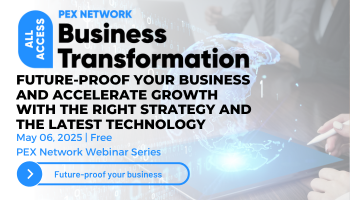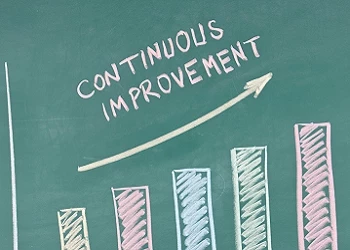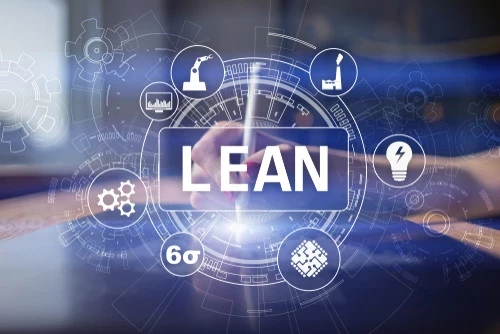6 things business leaders should know about sustainability
Sustainability is no longer an optional corporate initiative – it’s a fundamental requirement for long-term business success
Add bookmarkListen to this content
Audio conversion provided by OpenAI

Business sustainability is an increasingly important element of process excellence – impacting factors like cost, efficiency, customer satisfaction and legal/regulatory compliance.
Modern organizations are under growing pressure to reduce adverse environmental and social impacts resulting from their operations.
While businesses sustainability efforts have typically focused on meeting environmental, social and governance (ESG) goals, they are also becoming integral strategies for doing more with less – not no mention driving new avenues for business growth.
Don't miss any news, updates or insider tips from PEX Network by getting them delivered to your inbox. Sign up to our newsletter and join our community of experts.
The World Economic Forum (WEF) predicts circular supply chains to generate US$4.5 trillion in economic value by 2030, with 73 percent of global consumers willing to change consumption habits to lessen their environmental impact.
Meanwhile, a recent survey by global consultancy Kearney found that 69 percent of chief financial officers (CFOs) expect higher returns on sustainability initiatives compared to traditional investments. What’s more, 93 percent recognize the business case for sustainability investments and 92 percent expect their organizations to significantly increase net spend on sustainability this year.
As enterprise sustainability evolves from being a ‘nice to have’ concept to a linchpin of business success, here are six things business leaders should know about sustainability.
1. Sustainability is “business smart”
Jesper Brodin, CEO of IKEA, recently described decarbonizing as “business smart.” Since 2016, IKEA has reduced its climate footprint by -30.1 percent across all scopes, while growing the business by 23.7 percent, according to Brodin.
“Reducing waste, transitioning to renewable energy as well as supporting our customers to save water, waste, electricity and money is all a part of a long-term perspective that is resource smart, climate smart and, in the end, business smart.”
2. Huge brands are investing in sustainability
Some of the world’s largest and well-known organizations are investing in business sustainability. For example, toy giant The Lego Group uses direct air capture and storage technology to help remove CO2 from its operations.
“We want children to inherit a healthy planet – and we’re determined to play our part in making that happen,” says Annette Stube, chief sustainability officer at the LEGO Group. Success requires action to drive change, according to Stube. “We were the first large toy company to announce a science-based emissions reduction target in 2020 and we want to continue to lead the way in finding innovative solutions for the challenges we face.”
Likewise, UK trade retailer Screwfix recently added electric heavy goods vehicles (HGVs) to its logistics operations – a move that signifies a “milestone” in its continued commitment to reducing carbon emissions. The vehicles, which will be used twice within a 24-hour period to ensure optimal productivity, will help Screwfix reduce its reliance on traditional fossil fuels and cut CO2 emissions while maintaining efficient delivery services to its network of more than 900 stores.
3. Business cases are expanding quickly
The businesses case (or cases) for sustainability are evolving quickly. Beyond aligning with ESG targets and complying with laws and regulations, organizations that successfully adopt sustainability also enhance their market positioning, becoming more resilient and adaptable as well as future-proof.
Modern business leaders must recognize that sustainability is not just about mitigating risks – it’s about unlocking opportunities to create value for all stakeholders, driving cost efficiencies and enabling innovation, says Anand Subbaraj, CEO of Zuper.
Watch Abhishek Bhasin, national operational excellence manager, discuss HelloFresh’s journey to efficiency and waste reduction
4. Success isn’t easy
Business sustainability is multifaceted and complex. Achieving and maintaining value requires comprehensive planning, effective management and bold action. “The pursuit of sustainability demands companies to develop integrated strategies which impact the entire business operation including power consumption and raw material procurement as well as workforce involvement and waste disposal systems,” says Daniel Roberts, CEO of Lava Roofing.
From decarbonization level agreements (DLAs) and extending equipment lifespans to investing in energy efficiency, optimizing supply chains and building ‘green by design’ cultures, there are multiple things businesses can and must do to drive success from sustainability efforts.
5. Challenges must be overcome
Unsurprisingly, there are many challenges to effective business sustainability. One of the biggest barriers to delivering sustainable operations is the maze of global regulations that companies have to navigate from country to country.
“More and more countries are trying to hold businesses to account for their carbon emissions, with evermore legislation emerging,” says Janina Bauer, global head of sustainability at Celonis. The more complex the maze becomes, the tougher it becomes for organizations to find a way through.
Other challenges include upfront investment costs and managing complex supply chains, while everyone’s favourite buzzword – artificial intelligence (AI) – prevents its own set of obstacles. As enterprises adopt and utilize more AI, it is well documented that the power consumption requirements of increasingly sophisticated AI are also seismic.
“Leaders need to be aware that increased AI usage will impact their company’s carbon footprint and this should inform their decision making,” says Nigel O'Neill, founder of Tarralugo.
6. The future of business is sustainability
Sustainability is going to have a big impact on the future of business. Evolving regulations and laws will play their part, as will emerging technology and shifting customer expectations. “Sustainability is no longer an optional corporate initiative but a fundamental requirement for long-term business success,” says Claire Agutter, CEO of Scopism.
Organizations that prioritize sustainability in their operations will not only be better placed to fulfil their ethical responsibility to protect the planet but also position themselves for long-term success.
All Access: Business Transformation 2025

Don’t miss this opportunity to connect with your peers, gain exclusive insights, and future-proof your business. Join us at All Access: Business Transformation to future-proof your business and accelerate growth with the right strategy and the latest technology
Register Now





